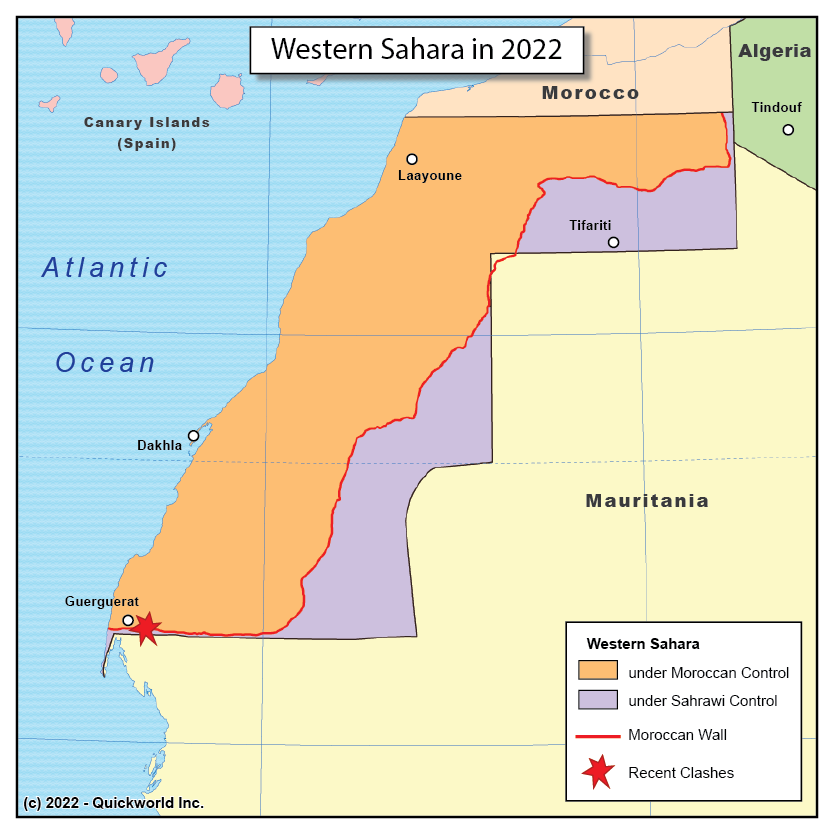The Western Sahara conflict is one of the most enduring disputes of post-colonial Africa. As of today, it is a source of major acrimony between Morocco and Algeria.
Spain was the colonial power holding sovereignty over the territory, and in the 1960s, its was summoned by the United Nations to decolonize. However, Spain had only fully administered a few coastal towns, and the vast majority of the population was nomadic and had little contact with the colonial authorities. Since the two neighbouring countries, Morocco to the North and Mauritania to the South, declared interest in annexing parts of the territory, Spain started negotiations with those countries, which led to partition of Western Sahara in 1974.
This created a major backlash from the local population, who had not been consulted on this. With the help of neighbouring Algeria, Western Sahara populations declared the Sahrawi Republic. Following the withdrawal of Mauritania, the Moroccan and Sahrawi entities stabilized over a fortified line that leaves the entire coastline and two thirds of the territory under Moroccan control and the Eastern third under Sahrawi control. Major population relocation has left the region of Tindouf in Western Algeria with large refugee camps.
The situation has been s at a standstill since the late 1980s, while the UN still officially demands that a referendum on future status be organized.
Western Sahara in 2022


